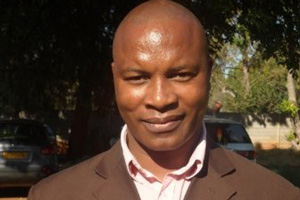
Residents’ groups in Harare are opposed to a new low-cost housing scheme proposed by government, saying only those with money and already owning properties were likely to benefit from the project.
by XOLISANI NCUBE
A similar project, which was called the Pay-For-Your-House Scheme launched in the 1990s, turned scandalous as many hundreds of low-income earners who had contributed a lot of money for many years got nothing out of it.
A few flats that were built around the capital were distributed through gross nepotism, partisanship and friendship amid rampant love scandals at the then Enos Chikowore-led Ministry of Construction and National Housing.
Millions of dollars from the scheme were later looted through a new VIP housing scheme in which senior government officials benefited from the poor people’s contributions.
Government then claimed it was investigating the scandal, but nothing came out of it.
Several names of top government officials, including ministers and relatives of President Robert Mugabe, featured in the list of beneficiaries of the VIP housing scheme, which built homes for people who had not contributed anything.
First Lady Grace Mugabe’s name also came up associated with this looting of the poor people’s housing fund, which the media dubbed “Gracelands”.
- Chamisa under fire over US$120K donation
- Mavhunga puts DeMbare into Chibuku quarterfinals
- Pension funds bet on Cabora Bassa oilfields
- Councils defy govt fire tender directive
Keep Reading
Several people said they still had receipts of payment towards this scheme, but did not get the houses or refunds of their contributions.
But the Saviour Kasukuwere-led Local Government, National Housing and Public Works ministry recently unveiled a similar scheme.
It says the scheme is for low-income earners and that the cheapest flat in high-density areas in Harare would cost $42 000.
Beneficiaries will be expected to pay $5 000 deposit and the balance would be payable over 20 years on $299,24 monthly instalments.
Harare Residents’ Trust director Precious Shumba said the deposit demanded by government was unaffordable to many, considering the high levels of unemployment and deteriorating standards of living.
“A deposit of $5 000 is unaffordable to the majority of citizens. Housing should be affordable to the majority and should not be designed to enrich a few elites who see an opportunity to exploit the poor. The poor people in Zimbabwe have continued to be abused by the powerful. Previous housing initiatives designed to benefit the poor people have ended up benefiting the rich and powerful, who hide behind office titles,” he said.
“Government must put in place accountability systems to guarantee transparency and accountability in the administration of the low-cost housing initiative.”
According to government, after paying $5 000, one could choose either to pay the balance over a period of between five and 20 years.
If the choice is 20 years for a two bedroomed flat in the high-density suburb of Tafara, a monthly instalment of $299,24 is required, while if one chooses five years, the instalment would be $743,31, amounts that residents’ groups say are unaffordable for low-income earners.
Another scheme which is being rolled out by government and funded by a commercial bank is a three-bedroomed flat project valued at $49 431.
Under the project, if one chooses to pay the balance over a period of 20 years, the monthly instalment will be $357, while for a period of five years, the monthly instalment will be $890.
Combined Harare Residents’ Association chairperson Simbarashe Moyo said government should avail such schemes at zero deposit and allow first-time homeseekers to own a house, or else the rich would continue to amass property at the expense of the poor.
“We doubt if the scheme is targeted at the poor. I believe the rich are the ones who will continue to buy those housing units. Who can afford $5 000 as deposit and later on a monthly instalment of $290 for 20 years given the high unemployment?” Moyo asked.
“Government must truly show its willingness to help the poor as opposed to giving opportunities to the rich, claiming that they are helping the poor. We know that these schemes will benefit their cronies . . . those who have money while the poor who are vending and toiling for nothing continue to wallow in poverty.”
Kasukuwere, however, said this time around, there would be no chancers and people should not fear anything.
“This is not a short-term project, but a long-term one which seeks to empower our people with houses. Honestly, we can’t talk of [Chikowore] projects that happened when I was not there. Even you yourself, you were still at school. How can you talk about such projects? I know nothing about that. What is important is the success of this project,” Kasukuwere said.











